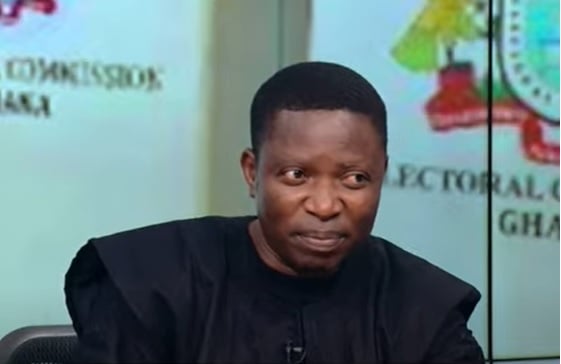The Akwatia by-election has been marred by accusations of foul play and attempts at disruption, primarily directed at the opposition New Patriotic Party (NPP) by the governing National Democratic Congress (NDC). Rashid Tanko-Computer, the NDC’s Deputy Director of Elections and IT, has publicly accused the NPP of orchestrating a deliberate campaign to destabilize the electoral process, driven by what he describes as their growing desperation in the face of a looming defeat. He claims that the NPP recognizes their declining prospects in the by-election, leading them to resort to disruptive tactics to undermine the integrity of the voting process.
At the heart of Mr. Tanko-Computer’s allegations is the claim that Alexander Kwamena Afenyo-Markin, the Majority Leader and Member of Parliament for Effutu, was personally observed tearing down NDC campaign posters at a polling station. This act, according to Mr. Tanko-Computer, underscores the NPP’s calculated strategy to create chaos and discredit the election. He emphasized that the posters had been displayed at the location for several weeks without any prior complaints, raising questions about the timing of their removal coinciding with the day of the by-election. He argued that the presence of campaign posters, whether from the NDC or the NPP, at locations designated as polling stations should not warrant their removal, especially on the day of voting. This action, in his view, serves only to generate unnecessary tension and apprehension among voters.
Further fueling the NDC’s accusations is the alleged complicity of electoral authorities. Mr. Tanko-Computer pointed to the “sudden re-designation” of a training venue used by NDC polling agents. This venue, according to his account, was abruptly transformed into a polling station on election day, forcing the NDC agents to vacate the premises. He questioned the rationale behind this last-minute change, particularly as the Electoral Commission had previously gazetted the designated polling stations. This unexplained alteration, he contends, raises concerns about the transparency and impartiality of the electoral process.
Mr. Tanko-Computer also questioned the logic behind removing campaign posters on voting day, arguing that posters do not influence voter choices and that such actions only serve to escalate tensions. He framed the removal of posters as a deliberate attempt to create an atmosphere of fear and panic. This act, he argued, served no practical purpose other than to disrupt the peaceful conduct of the election. He challenged the notion that posters could sway voters, emphasizing that they are merely visual aids and not determinants of individual ballot choices.
The situation in the Akwatia constituency has become increasingly tense, with the police reinforcing security measures following earlier disturbances that resulted in the arrest of at least one individual. These disturbances underscore the volatile nature of the by-election and the potential for further escalation. The allegations leveled by the NDC against the NPP, coupled with the reported incidents of unrest, cast a shadow over the electoral process.
The Electoral Commission has yet to formally address the allegations raised by the NDC. Their response, when it comes, will be crucial in clarifying the circumstances surrounding the disputed incidents and determining the appropriate course of action. The outcome of the Akwatia by-election will likely be closely scrutinized in light of these allegations, and the response of the Electoral Commission will play a significant role in shaping public perception of the election’s fairness and credibility. The increased police presence highlights the potential for further disruptions and underscores the need for a swift and transparent investigation into the allegations of misconduct.


